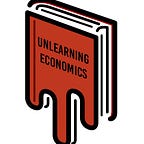What is an ‘Anecdote’?
There is an understandable tendency among quantitative types to dismiss ‘anecdotes’: stories about one person which make unjustified generalisations about the world. Blogger Anonymous Mugwump characterised anecdotes as “n=1”, something I’ve seen a few times. On BBC News the historian David Starkey castigated Ash Sarkar for using an anecdote, suggesting that it didn’t count as evidence at all (although he didn’t let her finish so we’ll never know what she was actually going to say). Professor of economics Jonathan Portes summarised this general view best with his article entitled “Forget anecdotes. If you want to know what’s going on in the real world, look at a spreadsheet”.
This view seems to be based on classical statistics, where every observation is a ‘random variable’. Because one draw of a random variable from a probability distribution tells you next to nothing about the latter’s properties, so-called anecdotes are thought to be meaningless. I’m not convinced, however, that this is always a sensible way of thinking about the social world, which is much more interdependent and lumpy than the world of independent and identically distributed variables that populates classical statistics.
The following is a non-exhaustive list of interrelated reasons that listening to individuals should not be conflated with n=1:
- People observe the world around them, including interacting with others and various media. Most people will have a pretty good idea of how things are going in their family, workplace, and region beyond just themselves. When the famous Geordie heckler during the Brexit campaign said “that’s your GDP, not ours” it turned out the statistics agreed with them — because they had correctly observed their own world.
- People interact with entities much bigger than themselves which are likely to be experienced similarly by everyone. Those who live in Newcastle know the state of the city centre isn’t going to be different for the other hundreds of thousands of people who live there, so they can make generalisations from it. Similarly, if we interview a worker who says his company treats him like shit, it’s unlikely he’s the only one.
- Human behaviour is governed by norms, habits, and culture. I don’t need statistics to know that the average Brit drinks over the recommended weekly limit, and in fact if I saw stats suggesting they didn’t I’d be more likely to doubt the stats than my own intuitions. Both the public and private sectors use focus groups with members in class categories because they know people in similar classes will share certain views and behaviours.
Of course, what I am defending is not so much random anecdotes—which can be unsystematic and misleading — as rigorous qualitative research, which is super hard (Portes, to his credit, acknowledges the validity of qualitative research at the end of his article). Random anecdotes lead to the largely fabricated campus free speech panic; anti-vaxxers; racist and classist narratives about immigration and welfare. But some of the best social scientists and political philosophers in history, from Adam Smith through Karl Marx to Jane Jacobs, utilised non-statistical observation to great effect. Our understanding of the world would be much poorer if those at the time had characterised their views in terms of mere sample size.
